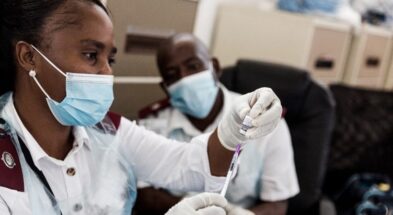Pfizer’s COVID-19 vaccine was approved by the UK on Wednesday, becoming the first Western country to formally endorse a jab, ahead of the United States and Europe. The emergency authorization of the vaccine, which is expected to be available to the most vulnerable people in Britain from next week, clears the way for the deployment of a vaccine that is expected to play a significant role in the global effort to halt the coronavirus pandemic.
“The government has today accepted the recommendation from the Independent Medicines and Healthcare products Regulatory Agency (MHRA) to approve Pfizer-BioNTech’s COVID-19 vaccine for use. This follows months of rigorous clinical trials and a thorough analysis of the data by experts at the MHRA who have concluded that the vaccine has met its strict standards of safety, quality and effectiveness,” the UK government said in a statement.
Prime Minister Boris Johnson said that the medicine authority’s approval was a global win and a ray of hope amid the gloom of the novel coronavirus which has killed nearly 1.5 million people so far globally, hammered the world economy and overturned normal life.
Britain’s clearance of BioNTech-Pfizer’s vaccine marks a “historic moment” in the battle against the pandemic, said Pfizer CEO Albert Bourla. The emergency approval for the vaccine, which the makers say is 95% effective in preventing illness, was attained in record time – just 23 days since Pfizer published the first data from its final-stage clinical trial.
The companies Pfizer-BioNTech, also have deals to supply hundreds of millions of shots to Europe, the United States, Japan and others. Earlier this week they sought regulatory clearance for their vaccine in the European Union, and in the United States, the Food and Drug Administration panel is set to meet on December 10 to discuss the vaccine. In the Eastern side of the world, China has already given emergency approval for three experimental vaccines and has inoculated around 1 million people since July. Russia has also been vaccinating frontline workers after approving its Sputnik V shot in August before it had completed late-stage testing on safety and efficacy.



















